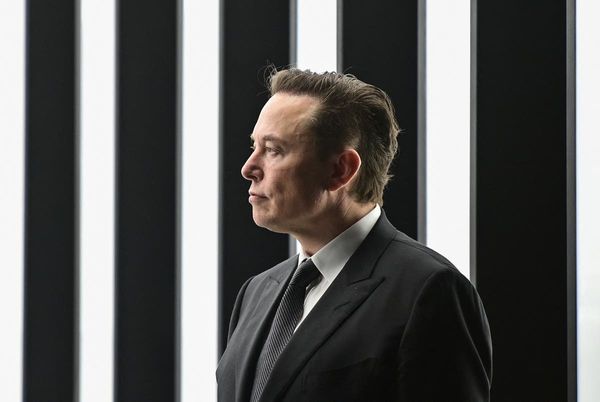
The government-appointed panel that approved Richard Sharp as a prime candidate for the role of BBC chair included a Conservative party donor and prospective MP, as well as the wife of the former chair of the Spectator who worked with Boris Johnson when he edited that political magazine.
As Sharp faces multiple investigations, amid allegations he helped Johnson secure a loan of up to £800,000 weeks before he was recommended for the job by the latter, the potential conflicts of interest among panel members responsible for interviewing and recommending candidates for the job have come under scrutiny.
The four-strong advisory assessment panel, which ultimately decided that five of the 23 applicants were fit for the job, was formed on the basis of three members being considered independent.
The selection panel was made up of Sarah Healey, permanent secretary at the Department for Digital, Culture, Media and Sport, who oversaw the short-listing process before the final decision made by Johnson.
The independent directors included Catherine Baxendale, a former Tesco executive, who was shortlisted to be a Tory parliamentary candidate in 2017, and who gave £50,000 to the party when David Cameron was prime minister.
The panel also included Blondel Cluff, wife of Algy Cluff, the North Sea oil tycoon, who owned the Spectator from 1980 until 1985. Cluff remained as chairman until the end of 2004 working with five editors – including Charles Moore, the government’s first choice for BBC chair – and Johnson.
Blondel Cluff, who two years ago was the beneficiary of the government’s public selection process becoming chair of the National Lottery community fund, has previously lavished praise on the “optimism and drive” that made Johnson’s leadership “inspirational and unifying”.
The fourth member of the panel was the senior independent director Sir William Fittall, who spent almost 30 years in the civil service before retiring in 2002. He died last March.
The thoughts and prayers of my husband, Algy, our family and I are with the PM @BorisJohnson and his loved ones and colleagues. The optimism and drive that fuels his leadership are inspirational and unifying. Let us all press on together as one family of nations. pic.twitter.com/fzggwX5yXD
— Blondel Cluff CBE (@BlondelCluff) April 7, 2020
The process for selecting “appointable” candidates, which included a presentation, broadcast interview scenario test and interview, had resulted in action by the public appointments watchdog concerned that ministers were breaching a strict code on political neutrality and independence.
In October 2020, Peter Riddell, the former commissioner for public appointments, tweeted that he had to push for panellists to be changed over concerns about ministers appointing people who were not independent of the Tory party, or who were “allies”.
While the final appointment is ultimately made by cabinet ministers and the prime minister, Riddell said that ministers were attempting to “tilt the process” from the outset.
@_peterriddell I have had to push back on appointment of 3 senior independent panel members. Need to be independent of the party. Also appointment of allies to panels. Concerned people aren’t just satisfied with having the final choice, also tilting the process #publicappts
— Public Appointments (@publicapptscomm) October 8, 2020
The move to replace panellists came amid growing concern that the government was seeking to “rebalance” the boards of public bodies, particularly in the arts, heritage and broadcasting sectors, by appointing allies and blocking critics, in part to help it fight “culture wars”.
The government also pursued a protracted and ultimately unsuccessful process to try to install Paul Dacre, former editor of the Daily Mail, as chair of the broadcasting regulator Ofcom, which has oversight of the BBC.
Dacre flunked his interview with the selection panel, which determined he was “unappointable”, and he pulled out after ministers were criticised for re-running the process to give him a second chance.
In the case of Sharp, Riddell wrote a letter to the chair of the culture select committee of MPs in early 2021 following the announcement of Sharp as the government’s preferred candidate for BBC chair.
The select committee, which publicly interviews preferred candidates ahead of an official appointment by ministers, comments on the “cosiness in the upper echelons of public appointments” and Sharp’s ties with Rishi Sunak and Johnson.
In the letter to the committee, Riddell said that his assessment was that the selection panel had run a “well conducted and thorough process” and that the “candidates’ potential conflicts of interest were fully explored”.
On Monday Riddell said that it was right that his successor, William Shawcross, whose daughter is Sunak’s deputy chief of staff, was investigating Sharp’s recruitment process since the panel was not aware of the role he played in helping Johnson seek to secure a loan.
In written evidence provided by Sharp to the committee ahead of the interview he did not raise his involvement with Johnson’s loan when responding to the question: “Do you currently or potentially have any business, financial or other non-pecuniary interests or commitments, that might give rise to the perception of a conflict of interest if you are appointed?”
Kevin Brennan, a member of the DCMS select committee, said in the Commons on Monday: “Helping to raise an £800,000 loan for the person ultimately responsible for your appointment should have been declared in response to that question.”
Sharp has agreed to appear before the committee on 7 February to face questions regarding the Johnson scandal.







